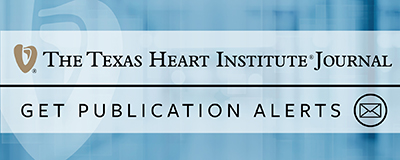From Rags to Riches: My Association with Maxwell Myer Wintrobe
The physical examination must be carried out with a watchful eye, a sensitive touch, discerning ears, and an alert sense of smell. Above all, what is needed is an alert mind, free of dogma and routine. Each clinical problem, no matter how routine it may appear to be on the surface, calls for an unprejudiced approach. Each possible clue must be pursued; nothing can be taken for granted.”
So said Maxwell Myer Wintrobe, the man whose body of work established hematology as a distinct subspecialty and earned him a front-row seat in the pantheon of physician-scientists. His words exemplify his clear thinking, his insatiable curiosity, his demanding nature, and his penchant for problem-solving. Through a series of fortuitous events, he also became my mentor.1 In this narrative, I will respectfully and lovingly refer to him as Max.
As a senior medical student in 1954, I was familiar with Max's authoritative textbook of hematology, having used it as a reference in my studies. I also knew that he was the Chairman of Medicine at the University of Utah School of Medicine in Salt Lake City. Little did I know, however, that our paths would soon cross. I had applied for a medical internship at only 2 training programs, confident that I would match with one or the other. But as fate would have it, I didn't match with either of them. Stunned and worried, I went immediately to my student advisor for help.
Fortunately, she happened to be a close friend and former colleague of Max, and within minutes, was speaking with him by telephone. She explained my situation to him and wondered whether he might have a position for me. Convinced by her strong recommendation, he agreed to take me as an add-on and assured me that my training would be the same as that of his other interns.
Several months later, when my postgraduate training began, I met Max in person for the first time. Thereafter, we met on teaching rounds 5 days a week, for 5 years. For 4 of those years, I was his house officer, including one as his Chief Resident. I was also a member of his faculty for a year. Working with him taught me much more than I could ever delineate. Suffice it to say, he instilled in me values that he held dear—an unwavering commitment to excellence, hard work, self-discipline, self-education, skepticism, and intellectual honesty. And true to his idol and role model, William Osler, Max emphasized that the patient's welfare comes first, always.
His hematologic knowledge, of course, was unparalleled. Equally impressive, however, were his phenomenal organizational skills and his awesome ability to comment intelligently on almost any topic outside of medicine. In that light, he could have given the keynote address at a wide variety of organizations and been loudly applauded for it.
Max was all business at work, but he knew when to relax and how to play. Moreover, he and his wife, Becky, loved to entertain and were incomparably gracious hosts. One evening, when I was a house officer, my wife and I were sole guests for dinner in their home. Strikingly, their living and dining rooms were adorned with rare and precious mementos from Max's travels around the world, making it seem as though we were having a gourmet meal in an art gallery. The dinner itself was simple, but elegant. Becky prepared it, and Max took pride in serving it. He also demonstrated his expertise in carving the brisket. After we had finished eating, Max serenaded us with a medley of tunes on his violin.
Something else memorable transpired that night. Midway through dinner, the phone rang. It was a long-distance personal call to Max from Louis B. Mayer of Metro-Goldwyn-Mayer Studios in Hollywood. Mayer had been diagnosed with a serious blood disorder and wanted Max's on-site opinion. The next day, Max boarded a plane to provide his consultation. Mayer died later that year of what turned out to be leukemia.
Aside from serving me dinner in his home, Max honored me in other ways. He never had harsh words for me as he often did for those who failed to put forth top effort. And when he had a cholecystectomy, he wanted me, and no one else, to manage his postoperative care.
Now, as I look back on my professional career, I will always remember the day it started—the day I didn't match. But thanks to the good Lord and Max, the bad news was short-lived. Within hours, I had gone from rags to riches.
Contributor Notes
†Dr. Fred died 30 December 2018. This is one of his final papers.
